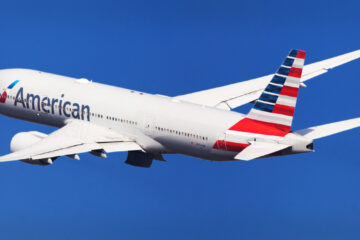A judge decides whether Kellogg’s needs to guarantee a certain amount of strawberries in Pop-Tarts filling.
Just how much real food is in those ultra-processed, nostalgic snacks from childhood never fails to generate internet discussion. Nutella’s sugar-to-hazelnut ratio regularly pops up in articles and memes.
The latest brouhaha occurred over strawberry Pop-Tarts from Kellogg’s (K) – Get Kellogg Company Report (remember popping one in the toaster before school?)
Stacy Chiappetta of Park Forest, Ill., on July 1 filed a class action lawsuit in the U.S. District Court for the Northern District of Illinois against Kellogg’s alleging that she was deceived by the strawberry Pop-Tarts labeling and claimed the amount of strawberry in the product was not sufficient.
However, U.S. District Judge Marvin Aspen on Tuesday dismissed the case asserting that the strawberry Pop-Tart packaging doesn’t guarantee a certain amount of strawberries in the product.
“The word ‘Strawberry,’ combined with a picture of half of a strawberry and a Pop-Tart oozing red filling, does not guarantee that there will be a certain amount of strawberries in the product’s filling,” Aspen said in the ruling, Reuters reported.
The amount of strawberry (the box’s ingredient list, according to the lawsuit, states that “pears, apples and strawberries” make up 2%) will not come as a surprise to anyone who has seen that bright Pop-Tart filling.
More Lawsuits Are Pending
At least three other lawsuits that are still pending have been filed in federal court elsewhere against Kellogg’s and its strawberry Pop-Tarts, including a $5 million lawsuit filed on Oct. 19 by Elizabeth Russett of New York in the U.S. District Court for the Southern District of New York in White Plains claiming that the company’s Whole Grain Frosted Strawberry Pop-Tarts misled consumers by not having enough actual strawberries to use that word in its name.
“The amount of strawberry ingredients is insufficient not merely to provide the nutrient benefits of strawberries but to provide a strawberry taste,” read the complaint.
Shutterstock
Kellogg’s has not been responding to the lawsuits while the lawyer representing the plaintiffs said that a different outcome can be made on “almost identical” facts.
“I expect that many of these types of cases may be dismissed,” Spencer Sheehan, who is also leading similar lawsuits against Kellogg’s Frosted Strawberry, Whole Grain Frosted Strawberry and Frosted Chocolate Fudge Pop-Tarts, told Reuters. “That does not mean the labeling is not misleading.”
Where Have We Seen This Type Of Lawsuit Before?
At least in the U.S., lawsuits over false advertising and food that may not be what the packaging says it is are incredibly common but difficult to litigate. In one of the best-known cases, a federal judge dismissed a class-action lawsuit claiming that Subway’s tuna sandwiches are “made from almost anything but tuna.”
While the lawsuit itself failed to meet the legal standard necessary to take the case to court, the situation ignited fierce debate on Subway’s tuna and what standards need to meet for advertising products to consumers — the New York Times independently tested samples of the famed tuna filling and found that 19 of the 20 samples had “no detectable tuna DNA sequences whatsoever.”
Subway, meanwhile, has always maintained that it uses only “100% wild-caught tuna.”
While there is yet to be a successful high-profile case, these types of lawsuits may be picking up steam as the consumer grows increasingly health-conscious — according to Reuters, law firm Perkins Cole filed similar 325 proposed class action lawsuits against the food and beverage industry in 2021. That number was at 221 in 2020.


